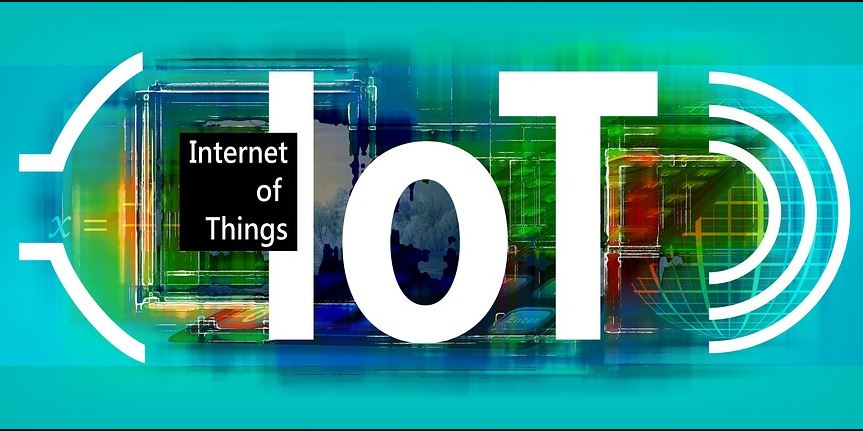Authored By– Amit Singh, CEO, Teliolabs…
The IoT (Internet of Things) is making industries more compatible; in all sense of benefits, it brings to them. For Example, let’s understand this by taking varied measures in Agriculture like quantifying soil tolerance, pH value, humidity check, making crop selections by accounting these measures, and by building smart watering systems and logistics where we can increase the raw produce, provided by agricultural land to the pharma sector. The whole sense of ‘n’.
“Well, here we are to study the benefits of IoT solutions in the pharma sector, which have not only opened up a new world of opportunities but also fueling new pathways for generations to come.”
IoT the Pharmaceutical Aid for Pharma Sector
In compliance with calling IoT as ‘Pharmaceutical Aid’ for the pharma sector in the present time; could be exemplified through the assistance it brings to the clinical help desk and trials. By building critical support systems that run 24×7, feeding itself in vital information like pivotal signs, clinical reports of patients, and their recovery rate can aid hospitals to become smart over their daily processes. For example, sending medical aid to the region after the storm, or something that provides an improvement in making precise decisions apprehending these disasters before they happen. Something, such as a device that comes to the aid of assisting to lend a hand to be of service to avail succor sustained support system.
IoT in Pharmaceutical Manufacturing
Iot is enabling machines, humans, devices & things to rehabilitate themselves in the world of internet connectivity, where everything is devised in a manner to build a sustainable environment to produce products that are defined to their core needs and value. Manufacturing drugs by applying the concept of internet connectivity of things, devices, and remote connectivity is helping many pharmaceutical companies to produce unadulterated drugs, with maximum and balanced amounts of constituents mixed to form tablets, syrups, and other vital forms of drugs. IoT has helped the manufacturing industry to grow way beyond human intervention, irrespective of its vertical, size, growth, and world of new opportunities it brings to the masses.
Internet age of Smart-Rx Prescription
Moving towards the doctors and hospital facilities; IoT can help doctors to send smart medical prescriptions, send refilling notices to the patients, and can allow paramedical staff to share vital patient information over the centralized systems, where it can be accessed by anyone. These large amounts of patient data can further be used by large monetary and regulatory bodies to take important measures on public health. Through the modern concept of IoT, many nations and states are building remote pharmacy dispensing technology that allows people to have access to multilingual pharmacy services 24 hours a day and seven days a week. Also, using big data that has been gathered around patient health can assist in forecasting possible health risks in the future.
Reduce maintenance cost
Adhering to IoT in the pharma sector can significantly reduce the maintenance costs of premises, manufacturing process, logistics, personnel, and more. Moreover, bringing in a smart network of connected devices with smart monitoring sensors can reduce the risk of machinery malfunctions and guarantee precision production by detecting issues and making adjustments before they happen. Using IoT sensors in manufacturing or storage units can help detect small decreases in pressure or any leakage. Thus, timely updates and maintenance could be essential in the pharma sector to prevent havoc and any hazardous situation.
Consistency
Consistency is the key for any business, even for the tastemakers. IoT benefits in the pharma sector are immensely high in all aspects. All pharmaceutical preparations are very well defined and formulated with marked standard units. The number of salts that need to be added, the number of chemical constituents required, and varied processes are either predefined or bound to follow a particular method which is the fundamental of any production unit. Thus, integrating IoT in the pharma sector cannot only proliferate consistency in all aspects of quality, assurance, or standards. But, IoT can help establish regulatory compliance and consistency in the pharma sector or the final product they manufacture by minimizing the manual paperwork and potential margin of error.
Conclusion:
Thus, the benefits of the IoT in the Pharmaceutical industry can be widely understood through the major opportunities it brings to the pharma industries. I believe the key areas in the pharma sector still need a desperate pull with respect to the current major industry scenarios such as lack of connectivity in operations, by minimizing the paperwork, incorporating more and more IoT- connected devices in the open network. Moreover adding up to patient connectivity and their dependency over these lifesaving engines are the most important aspects of use cases of IoT in the pharmaceutical sector and its impact on patient’s adherence & belief in the overall health care system.

Related Posts
What is Open source IoT stack?
11 Best Open source IoT Platforms To Develop Smart Projects
Benefits of IoT Solutions in Pharma Sector
Top 3 Blood Pressure Monitors in India in 2020
Letstrack wins Aegis Graham Bell Awards for Innovation in IOT
TRAK N TELL makes a major thrust on Vehicular Telematics